Angelina Jolie On Why Protecting The Vulnerable During The Pandemic Is Crucial
In a rare interview, the actress and activist discusses the fallout of coronavirus and also shares what she's been watching, reading and listening to in lockdown
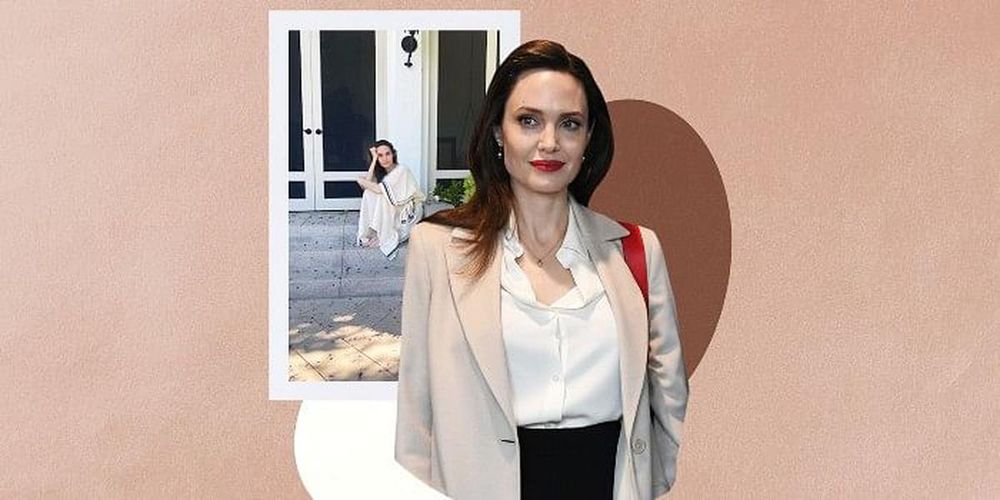
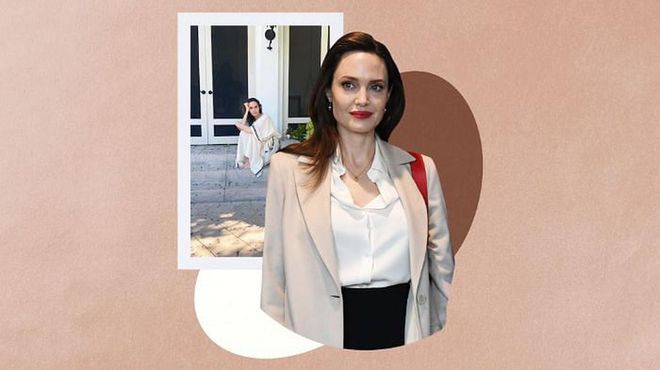
Photo: Courtesy
Angelina Jolie: Why Protecting The Vulnerable During The Pandemic Is Crucial
Angelina Jolie is an Oscar-winning actress, film-maker, humanitarian and Special Envoy of the High Commissioner for Refugees. Below, she discusses fighting systemic racism, the importance of protecting the vulnerable during the pandemic, and how she, like so many others, has been getting through this time of self-isolation and -reflection.
Has this period of lockdown prompted you to reconsider what's truly important to you?
I was fortunate years ago to travel with the UN to frontlines around the world and put into perspective what really matters. Having six children, I am reminded daily of what is most important. But after almost two decades of international work, this pandemic and this moment in America has made me rethink the needs and suffering within my own country. I am focusing both globally and domestically; they are of course linked. There are more than 70 million people who have had to flee their homes worldwide because of war and persecution – and there is racism and discrimination in America. A system that protects me but might not protect my daughter – or any other man, woman or child in our country based on skin colour – is intolerable. We need to progress beyond sympathy and good intentions to laws and policies that actually address structural racism and impunity. Ending abuses in policing is just the start. It goes far beyond that, to all aspects of society, from our education system to our politics.
What advice do you have for teaching children about issues surrounding race and racism?
To listen to those who are being oppressed and never assume to know.
Related article: Angelina Jolie Donates To NAACP Legal Defense Fund
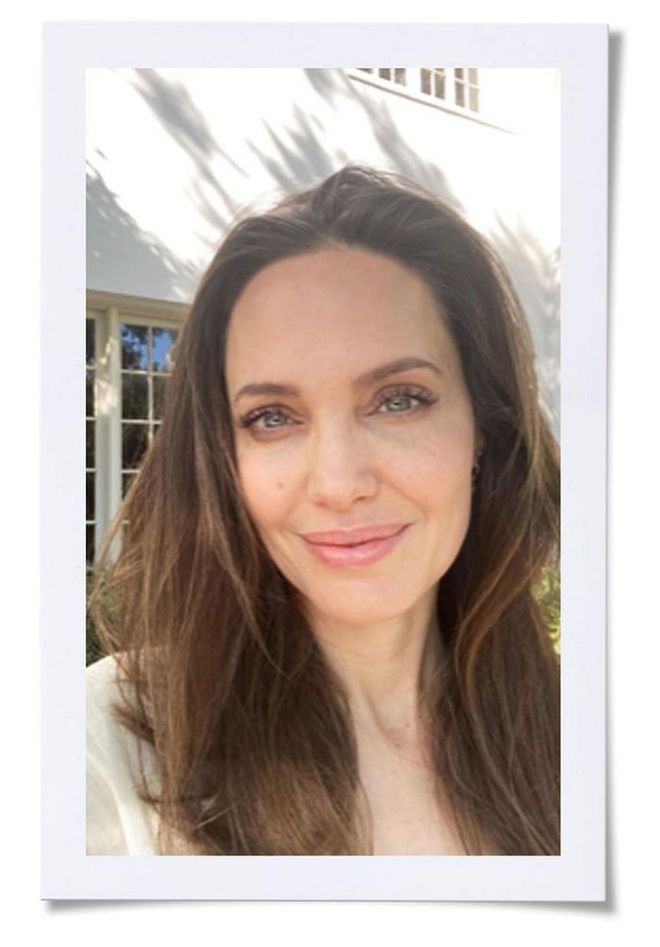
Photo: Courtesy of Knox Jolie-Pitt
Angelina Jolie
What have been some of the most faith-restoring things you’ve witnessed during lockdown?
The way people are rising. Saying that they are tired with the excuses and half-measures, and showing solidarity with each other in the face of inadequate responses by those in power. It feels like the world is waking up, and people are forcing a deeper reckoning within their societies. It is time to make changes in our laws and our institutions – listening to those who have been most affected and whose voices have been excluded.
What have been some of the most horrifying impacts of lockdown from your perspective?
I’m deeply worried about the impact of the pandemic and the global economic crisis on refugees. They are people who have been driven from their homes and countries by bombs, rape and violent persecution in all its forms, long before this virus. They live with xenophobia and racism and prejudice every single day and are some of the most vulnerable people in the world when it comes to the economic consequences of the pandemic.
The other horror is domestic violence. The reality before lockdown was that the most dangerous place for a woman to be was in her home. During lockdown, the abuse and level of violence has risen. Above all my concern is for the children. The number of children we know are being abused at this very moment keeps me up at night. There is a global health crisis for children from abuse, neglect and the effects of that trauma. And not nearly enough done to protect them.
“During lockdown, the abuse and level of violence has risen”
Related article: 31 Celebrities Who Have Gone Above And Beyond To Support Black Lives Matter
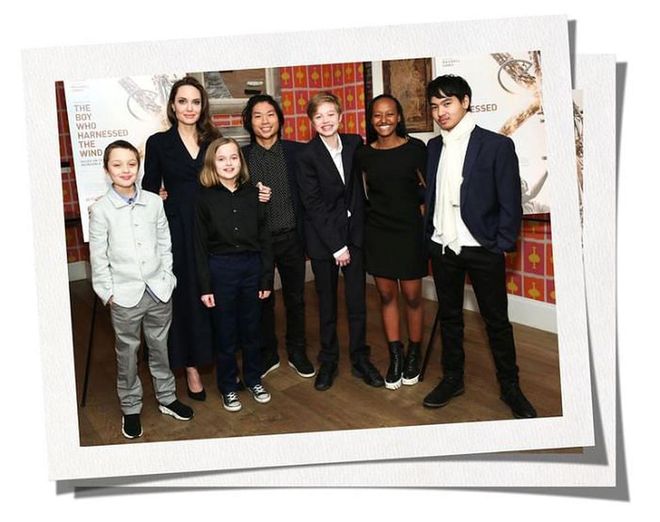
Photo: Getty
Angelina Jolie and children
Why do you think many have failed to take the extreme issues surrounding domestic violence seriously?
We still turn a blind eye to domestic violence. We often don’t believe survivors, we don’t put the rights of children first or take their trauma seriously. Our child-protection services are not adequately resourced and funded. They lack proper training. So do judges. In America, there isn’t even a nationwide register of child-abuse deaths or an agreed definition of death caused by maltreatment, meaning we can’t even track the scale of the problem effectively. It is my belief that not only those who commit the abuse but those who cover and dismiss it, must be held accountable. Everyone says that they are against domestic violence, but it is these kinds of very specific things we need to change – and the protection of children should be at the heart of it.
Millions of school- and college-aged young people have had their education disrupted by the pandemic. Are there some dangers that some children will never return to the classroom and if so, how do we guard against it?
When girls are out of school it leaves many more vulnerable to child marriage, child labour, sexual abuse and other violations of their rights. The pandemic looks set to have knock-on effects on girls in many countries. We know it but still there is inertia. The UN is warning that the pandemic could result in two million more cases of female genital mutilation and 13 million more child marriages over the next decade. That is horrific. There is no easy answer but sounding the alarm on this, urging governments to anticipate where girls are going to be most vulnerable and to act, is essential as a first step. And we shouldn’t buy into any rhetoric from leaders that says that other issues take priority. There is nothing more important.
Related article: Brad Pitt And Angelina Jolie Are Reportedly “Better Than They Have Been” Post-Split
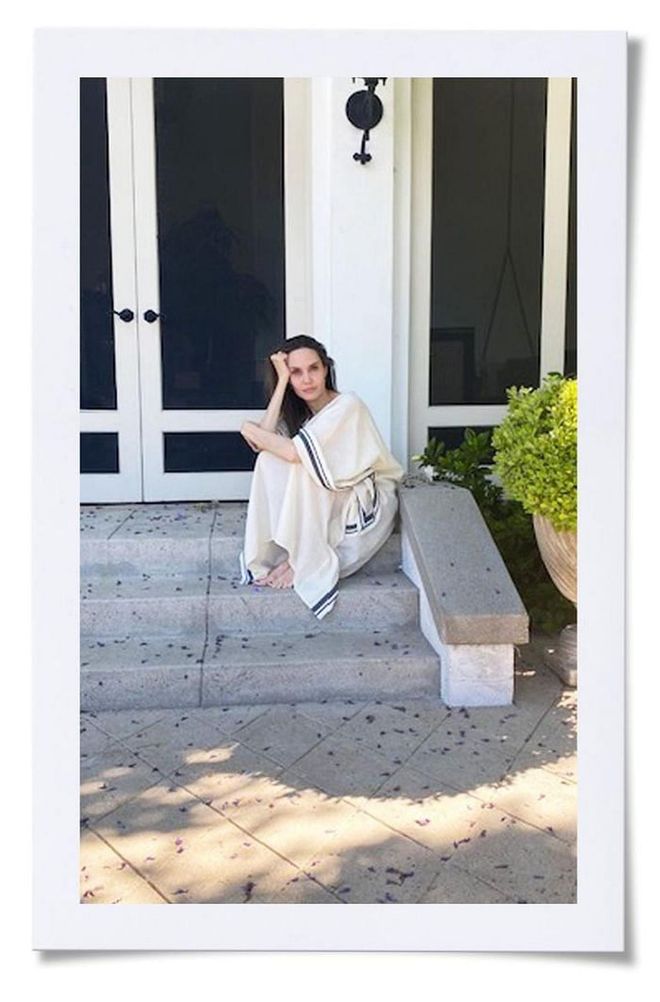
Photo: Courtesy of Knox Jolie-Pitt
Angelina Jolie
You are a passionate advocate for change; what connects all the causes you support?
Human rights and equality. Some countries have more extreme circumstances, but the reality is that the struggle to live in safety and independence and to be able to work and provide for your family with dignity is the same fight everywhere, and it is getting harder for a lot of the most vulnerable people. Whether that is a refugee family or a family struggling with hunger and poverty in our own countries.
“It is only getting harder for a lot of the most vulnerable people”
How did your partnership with Amnesty International on children’s books come about? What gave you the idea?
The reason rights do not reach a child in a country or home is that adults are blocking them. So in many cases, the child cannot depend on the adults. We are working on a book to help children empower themselves. It’s about what to do when your rights are revoked or not granted at the outset. We want to help kids, who are so engaged now, to use their knowledge and fight for their rights and claim them.
What have you been reading or watching in isolation, and how have you found this helpful?
I am in listening mode most hours of the day. I follow Time magazine, The New York Times, the BBC World Service and BLM activists online. Most recently, I’ve watched the documentary I Am Not Your Negro about James Baldwin and the civil-rights movement in America. Before bed, I’ve been reading Unreasonable Behaviour by Don McCullin and reflecting on how journalism has changed in the last half a century.
What have you done to ease anxious thoughts during the pandemic?
Like most parents, I focus on staying calm so my children don’t feel anxiety from me on top of all they are worrying about. I put all my energy into them. During the lockdown, Vivienne’s bunny passed away during a surgery, and we adopted two sweet little ones who are disabled. They need to be in pairs. They are so gentle and it has helped to focus on their care with her at this time. And on the dogs, and snake and lizard…
What is your one wish for life post-lockdown?
That the focus on efforts to make structural change to protect vulnerable people stays at the centre of our discussions. That we don’t turn inward and we work with even more awareness of our shared humanity.
This article originally appeared on Harper's BAZAAR UK.